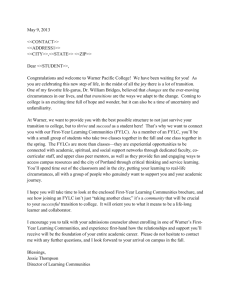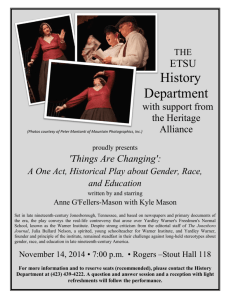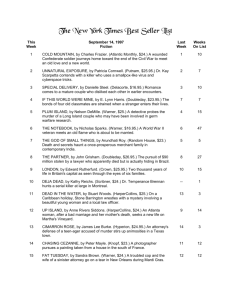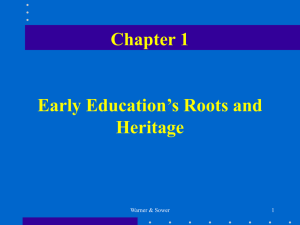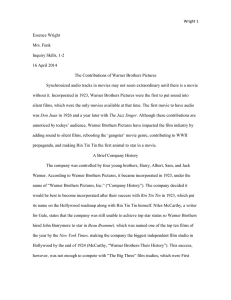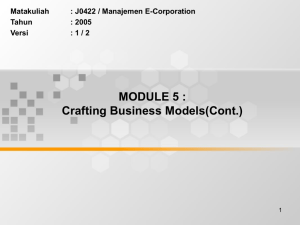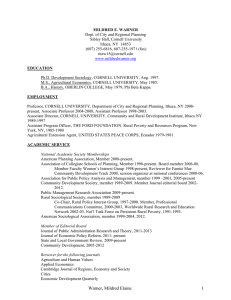Diane Warner's Presentation
advertisement
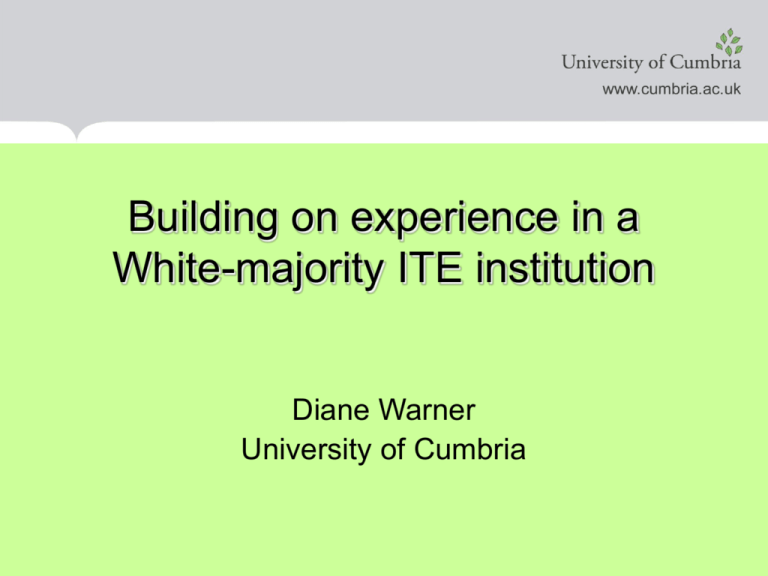
Building on experience in a White-majority ITE institution Diane Warner University of Cumbria Focus An engagement with student teachers’ attitudes towards teaching with cultural awareness. Two examples Cumbria students • Our situation at Cumbria: http://www.guardian.co.uk/news/datablog/in teractive/2011/jun/22/english-schoolsystem-interactive-map (Accessed March 2012) A current context Teachers’ Standards (DfE, 2011) & cultural diversity Part 1 …have a clear understanding of the needs of all pupils, including those with … English as an additional language; … and be able to use and evaluate distinctive teaching approaches to engage and support them (p.7). Part 2 … not undermine fundamental British values, including …tolerance of those with different faiths and beliefs (p.9). Student teachers and ‘race’ Perspectives from national and international sources • White STs engage in ITE from a ‘culturally-disaware’ perspective – unconscious adoption of white, dominant outlook emerging from their own schooling, community, values (Warner, 2010); • They did not feel they had adequate input in dealing with cultural & ethnic diversity issues, which many found ‘scary’ (Lander, 2008). But…! UoC NQT survey – 57% felt unprepared to teach learners from minority ethnic backgrounds and 61% unprepared to teach learners with EAL. Slow take-up of an EAL elective module. • Moore (2004) & Baszile (2008) challenge the notion of the ‘good teacher’ - a neutralised being, performing ‘competencies’ but disengaged from critique and evaluation of the ‘theories’ informing their practice. • All teachers, whatever the ethnic mix of a school, need training in: social cohesion & engagement; a challenge to their colourblindness, white privilege & cultures of dominance; developing a positive mind-set and awareness of hidden values in school & society (Warner & Elton-Chalcraft, 2011). Example 1 ‘Developing as a Culturally-aware teacher’ – 2 extracts from student work, this year. What problems, challenges and opportunities are beginning to arise in these students’ thinking in relation to ethnic and cultural diversity? • Discuss and discern any differences in their understandings and awareness within their responses Student understanding tentative findings from (Elton-Chalcraft, Roberts, Warner, Hopwood,2011-12) • More commentary indicating limited understandings of difference and diversity– ‘all children are the same’ (echoing Gaine 2005); ‘tips for teachers’ required, e.g. ‘what to give them when they are unable to do reading and writing’ • Less commentary indicating more developed understandings - ‘realise the rapid progress chn. can make when learning a new language’; ‘shouldn’t all the other children be learning a 2nd language’; ‘having a good knowledge of [children’s] cultural background is essential’; ‘see culture as a strength not a weakness, which includes respect for beliefs and values’. Example 2 NQT website to support and develop practice. https://portfolio.pebblepad.co.uk/cumbria/vie wasset.aspx?oid=486262&type=webfolio& pageoid=525235 ITE institutions should question whether they enable students to… • …understand the perversity of a dominant, hegemonic stance, deconstruct invisibility of ‘whiteness’ and racialize their thinking or “read[ing] the codes of our cultural constructs” (Aveling, 2006); • …know the ‘ethnic self’ and the ‘ethnic other’... an understanding of identity as a post-structuralist entity comprising multiple, negotiated and complex factors and marked by such factors as gender, ethnicity and social class; (Santoro, 2009) • “…engage in a Freirian, critical conscientization which enables them to examine self, dialogue with others and…engage in meaningful learning.” (Sleeter et al, 2004) Making steps…? Fourth Year UG student (March 2012) I am applying to do a masters in social work … In my personal statement I am going to highlight how, through your modules, I have an increased awareness of how diverse our society is and the importance of celebrating individual differences; including how groups who may consider themselves as outsiders, within the UK, can be made to feel included within the education system. References Aveling, N., (2006) ‘”Hacking at our very roots”: rearticulating White racial identity within the context of teacher education’. Race, Ethnicity and Education 9(3), pp. 261-274. Bhopal, K., Harris, R., Rhamie,J. (2009) ‘The teaching of ‘race’, diversity and inclusion on PGCE courses: a case study analysis of the University of Southampton’. Available online at: www.multiverse.ac.uk/ViewArticle2.aspx?anchorId=17844&selectedId=298&menu=178758&ContentId=15540 Baszile, D., (2008) ‘The Oppressor Within: A Counterstory of Race, Repression, and Teacher Reflection’. Springer Science+Business Media,LLC, Urban Review 41(4), pp. 371-378 Elton-Chalcraft, S., Hopwood, L., Roberts, L. & Warner, D (Forthcoming) ‘Opening the Can of worms: preparing student teachers to teach for diversity in the primary classroom’, Currently being peer-reviewed for Cambridge: Cambridge Journal of Education. Moore, A. (2004). The good teacher: Dominant discourses in teaching and teacher education. London: RoutledgeFalmer. Lander, V. '(2008) Race', culture and all that: An examination of the perspectives of 'White' secondary student teachers about race equality issues in their initial teacher education (ITE). Paper presented at the annual conference of the British Educational Research Association, Heriott Watt University, Edinburgh. Santoro, N., (2009) ‘Teaching in culturally diverse contexts: what knowledge about ‘self’ and ‘others’ do teachers need?’ in the Journal of Education for Teaching 35(1), pp. 33–45. Sleeter, C., Torres, M.& Laughlin, P. (2004) ‘Scaffolding Conscientization through Inquiry in Teacher Education’ in Teacher Education Quarterly 31(1) pp. 81-96. Warner, D. (2010) ‘Moving into the Unknown’. Race Equality Teaching, 28:3 pp.39-43 Warner, D. (2011) 'Shakespeare and Racial Diversity for Primary children: exploring ways to develop identity'. TEAN Journal, 2 (1). Warner, D. & Elton-Chalcraft, S., (2011) ‘‘Race’, Culture and Ethnicity : teachers and children’, in Cooper, H., Professional Studies in Primary Education, London: Sage.
